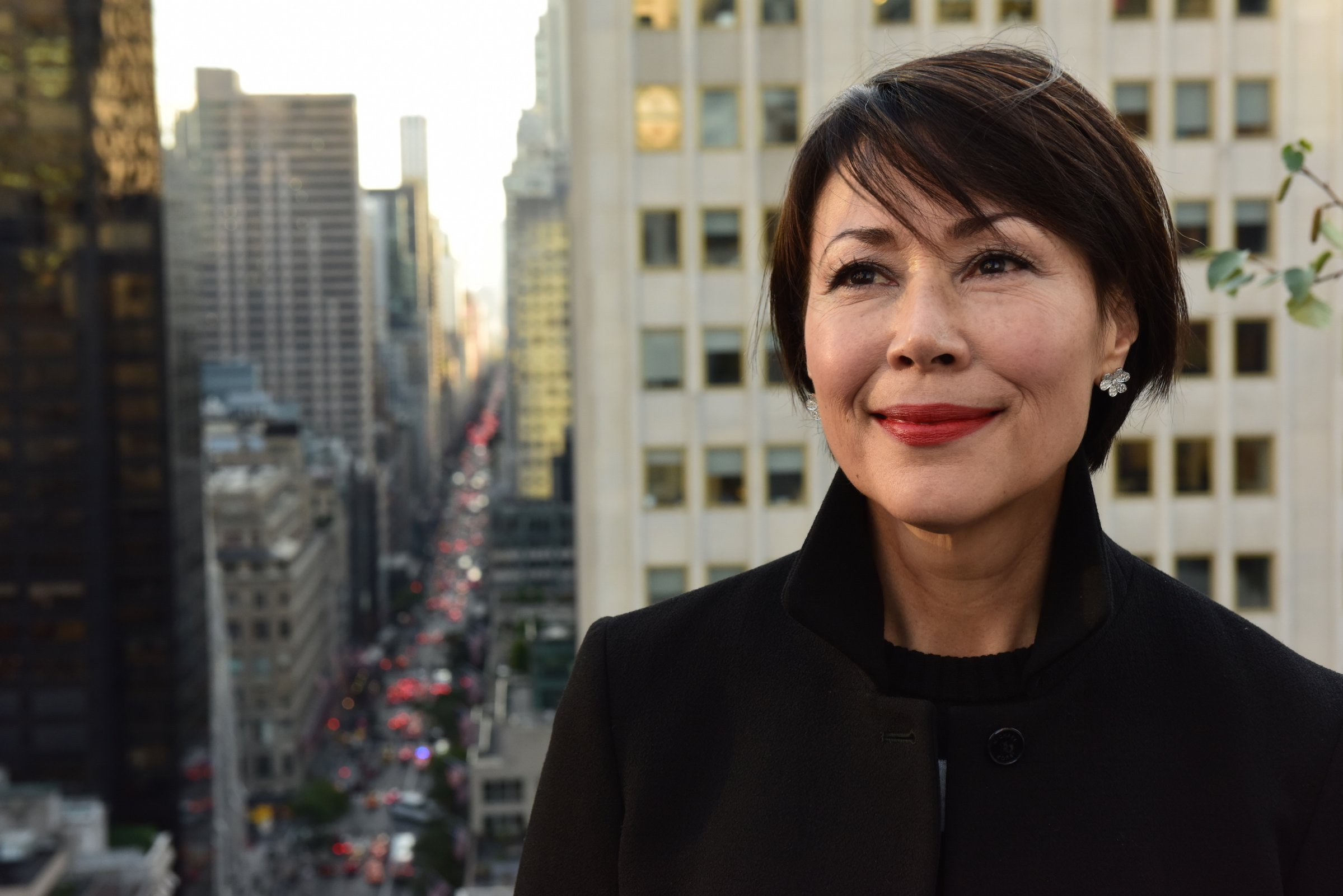
When you find yourself in the middle of a moment that will change history forever — that will change you forever — you can usually tell.
At least that’s what Ann Curry has found, in the course of her award-winning career as a journalist, reporting on world events from conflict in Syria to climate change in the Antarctic. The struggle to survive war and disaster is traumatic, she says, and the survivors she’s met along the way know that their lives are being permanently altered.
That idea is a crucial component behind Curry’s new TV series, We’ll Meet Again. Using a very particular brand of personal story — one partly inspired by parallel stories in Curry’s own family history and one in the life of executive producer Justine Kershaw — the series focuses on what it was like to live through a major moment in history. In each of the six episodes, the first of which premieres Tuesday night on PBS, individuals who survived a cataclysmic event are reunited with the long-lost people with whom they experienced that important moment.
They are people like Holocaust survivor Peter Engler — who, in this exclusive clip from the show, explores his desire to reunite with his surrogate family from his time in a Jewish ghetto during World War II — as well as survivors of more recent world-shaping moments, such as the eruption of Mount St. Helens and 9/11.
“These events are constantly happening,” Curry says. “There are stories that are unfolding today, and these connections are happening as we speak.”
She describes the series as “foundationally journalism” in the way she and her colleagues used what she calls “breadcrumbs” to track down the people on the other side of the equation and tell their stories. But, while she sees We’ll Meet Again is a continuation of her work, the transition from current events to history also represents a major shift.
As a journalist arriving in a place like Haiti or Syria in moments of tumult, Curry says she was able to pursue the truth of what was happening, but perspective on what it meant was often out of reach. As she tracked down the who and the where of world events, it was often too soon to get much into how and why. It’s only with time that those questions can really be answered.
Understanding those details can do more than add layers to our understanding of the past, Curry says. Knowing what it took to survive a volcanic eruption, for example, is a way to learn more about events that are sure to happen again in the future. And, after having followed those breadcrumbs, she’s found that even very different world events have a tendency to affect people in a similar way. Living through those moments, often terrible moments, makes the survivors stronger — and helps them see that other people, especially those who helped them survive, are what really matters.
So what does Curry make of our current moment? From chaos in Washington to the wave of people speaking up about sexual misconduct in many realms of life (a moment in which Curry has been inadvertently swept up, as allegations against her former Today co-host Matt Lauer have brought renewed interest in her 2012 departure from the show), it can feel as if there’s simply more going on in American news than there used to be, and things are no calmer abroad.
Of course we’re living through a world-changing moment, Curry says. In fact, the inevitability of change and challenges is one of the only things people can count on. Plus, while there are plenty of events going on in the world right now that cause the kind of undeniable trauma that can’t be missed — Curry points to the plight of the Rohingya, for example, and the situation in Sudan — not everything that changes the world is so clear to see.
“Realities can come upon us slowly, but it’s hard because we don’t hear them,” Curry says. “Climate change, for example, is one of those world-changing events occurring in a more silent manner. We’re starting to wake up, finally, to the reality of that, what I believe will be the biggest world-changing event in human history. But we’ve evolved to respond to loud noises. We don’t respond when something happens in a manner that we can’t see, that we can’t hear coming. People don’t think, I’m now changed forever, but that doesn’t negate the fact.”
That fact is a major reason why it’s worth listening to those who have been through the most intense events. “What I’ve come away thinking is that these are the stories of all of us,” Curry says.
More Must-Reads from TIME
- Donald Trump Is TIME's 2024 Person of the Year
- Why We Chose Trump as Person of the Year
- Is Intermittent Fasting Good or Bad for You?
- The 100 Must-Read Books of 2024
- The 20 Best Christmas TV Episodes
- Column: If Optimism Feels Ridiculous Now, Try Hope
- The Future of Climate Action Is Trade Policy
- Merle Bombardieri Is Helping People Make the Baby Decision
Write to Lily Rothman at lily.rothman@time.com